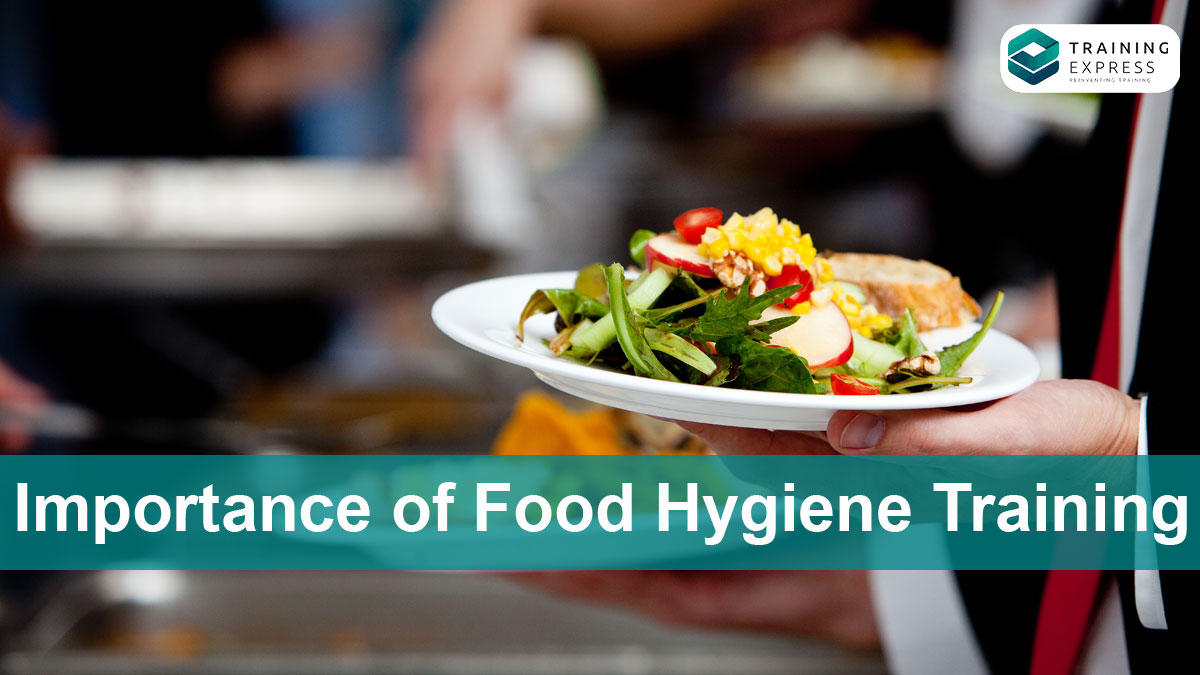
The risks associated with food are high. You can experience the spread of bacteria, cross-contamination, allergic reactions and severe illness if you fail to handle food responsibly and hygienically. But there are also other lesser-known or secondary reasons why food hygiene training is important. And that’s to uphold a reputable, trustworthy business where customers can not only enjoy the food you supply but also trust that you handle the food they eat with the utmost care and hygiene.
Table of Contents
The Importance of Food Hygiene Training
Here are some of the main reasons why food hygiene is essential. Many of the reasons relate to hygiene in the workplace. But we’ve also included some reasons why proper food hygiene training is useful even at home.
1. Adhere to food safety legislation
There are stringent food safety regulations in place to ensure that all businesses working with food do so safely and responsibly. Legislation requires firms to provide all food handlers with a working understanding of food safety. Which also defines each individuals responsibility and obligations specific for their role either as an employer, and employee.
Food safety legislation helps businesses to remove or reduce all kinds of contamination when handling products for human consumption by requiring businesses to adhere to a suitable safety system.
Food hygiene training covers all of these elements and provides you with everything you need to know to stay compliant.
2. To make sure that food is safe to eat
If food is not safe to eat, it is going to make you sick. And one of the best ways that we can make sure that food is safe is by ensuring that the source is reputable.
What this means for the diner in a restaurant is that they can trust that the food they eat at the restaurant is good, responsibly sourced, hygienic and fresh. But what it means to the restaurant is that their suppliers are suitable, hygienic and responsible – this cycle repeats down the food chain from the source of food (farm) right up to the consumer.
There are many ways in which we can ensure food is safe, and that’s what you’ll learn by taking food hygiene training.
3. Prevent or control the spread of harmful bacteria
All kinds of bacteria can develop and spread in and around all of our food sources. At every stage of the food chain – making food a high risk of harm if it’s not handled correctly.
Bacteria can be reduced or controlled to safe levels through hygienic practices such as:
- Proper and appropriate storage
- Temperature control
- Appropriate handling of food
- Through the management and disposal of expired food.
- Organised paper trails
Food Hygiene training covers all of these bases, ensuring that even at home, you can keep your family safe.
4. Remove the risk of food poisoning
Bacteria, parasites and viruses can be found in food and can cause food poisoning. Cross-contamination can occur so easily, even at home if you don’t know what you’re doing.
Many people every day, even with food safety legislation in place, experience food poisoning. In some cases, this can lead to death or serious illness. It’s a big deal. The problem will significantly worsen if food safety legislation wasn’t in force to help keep the food chain safe and if efficient and responsible food hygiene practices aren’t in place.
Primarily because in many situations, you cannot tell when food is unsafe to eat. This means that food hygiene standards, operations and practices should be in place to ensure that all risk of food poisoning is controlled or removed and that everybody who works with food knows where the food has been and if it has been exposed to risk.
5. Protect vulnerable people
Vulnerable people fall into a high-risk category when it comes to food safety risks. The people at risk are:
- Pregnant and nursing women
- The elderly
- Small children
- People who have a compromised immune system, such as those going through cancer or with HIV.
Finally, some people have allergies to certain types of food, which could be life-threatening if they happen to eat food they are allergic too accidentally.
In some cases, people can be so allergic that they cannot eat food that is prepared in the same area that the food they are allergic to has also been prepared.
6. Understand the role you play when it comes to food hygiene
Simple things like not washing hands are one of the significant bacteria spreading culprits when it comes to food hygiene. The same goes for how you cough, sneeze and behave around food.
You’ll be surprised how stringent you need to be about your own personal hygiene when working with food. Learning more about food hygiene will help you to understand what you need to do personally to maintain food safety and prevent any potential embarrassment or worse, harm to another person.
7. Reduce food waste
When you have a system in place for managing how food is stored, handled, prepared and served, you avoid wasting food.
Bacteria spreads which mean that a business will lose a lot of their stock if they are not careful to keep the food free from sources of bacteria. You’ll learn all about this in a food hygiene course.
8. Improve efficiency
Everything needs a process or routine to work well. When you are maintaining food hygiene, you are also working efficiently, which saves businesses money on the soft costs that come with running an inefficient business and ensures pride, job satisfaction and camaraderie amongst the staff involved with efficient working practices.
9. Build a positive reputation
Getting straight to the point, a food business with an excellent hygiene rating will be instantly reputable. Of course, other factors can support an establishments reputation such as hospitality, great food and excellent customer service. But if you have great hospitality and customer service, without excellent hygiene, you won’t have a reputable business.
10. Secure a job in the food industry
If you have studied food hygiene, you’ll instantly show your prospective employers that you understand the importance of food safety. And that you are responsible enough not only to be aware of it but to take action and get yourself some training on it.
This will put you ahead of the crowd and make you more likely to be the one hired.
How To Get A Food Hygiene Certificate
If you are planning on working with food, you’ll need to take food hygiene training for all of the reasons highlighted above and more as you’ll discover when you take the training. But how do you get a food hygiene certificate?
Well, that’s simple, there are many course providers offer a certified food hygiene training such as this one here at Training Express. All you need to do is to sign up and get started by following the instructions provided by the course holder when you have successfully completed the course you’ll receive a certification.
Read more on our blog
- The Early Years Foundation Stage (EYFS)
- Sports First Aid | Everything You Need To Know
- Lots of Likes on Instagram: How You Can Quickly Increase Popularity
- Why You Should Use Photo Background Removers For Mobile Devices
- Maximizing ROI: 11 Strategies For Efficient Advertising Spend
- How to Keep Your Data Safe While Applying for Jobs: 6 Tips
- Take Mac Classes to Transform Your Design Profession
- Exploring the landscape of e-commerce hosting
- Personal Branding For Executives: 7 Tips For Maximum Impact
- Transformative Technologies in Senior Living Homes: A Glimpse into 2024
- Available Courses
- Career Bundles72
- Animal care5
- Law8
- Quality Licence Scheme Endorsed111
- Teaching13
- Teaching & Academics Primary27
- Accounting & Finance Primary30
- Training3
- Design9
- IT & Software44
- Healthcare126
- Marketing31
- Health and Safety402
- Construction48
- Electronics25
- Hospitality22
- Health and Social Care219
- Child Psychology37
- Management375
- Business Skills268
- First Aid70
- Employability264
- Safeguarding75
- Food Hygiene103
- Personal Development1277
 Food Hygiene
Food Hygiene Health & Safety
Health & Safety Safeguarding
Safeguarding First Aid
First Aid Business Skills
Business Skills Personal Development
Personal Development








